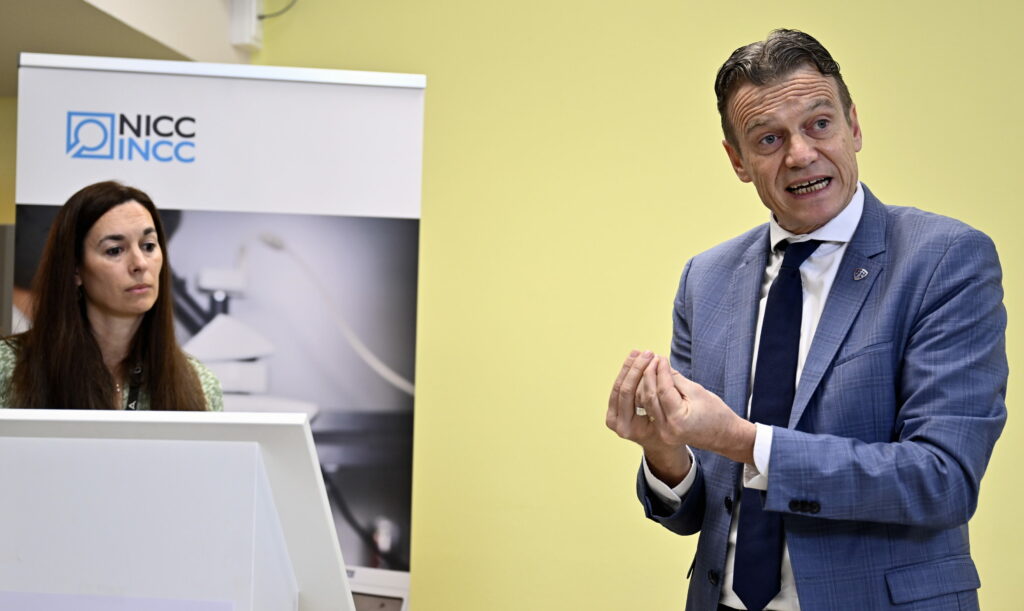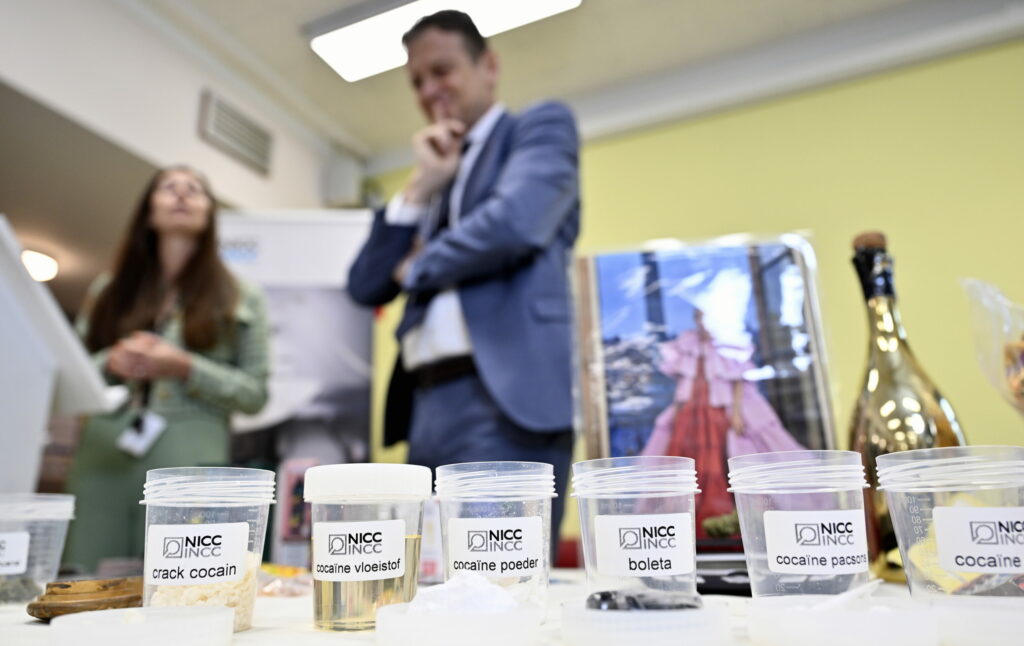A brand new forensic drug expertise centre is being inaugurated to support police, customs and magistrates in the ongoing fight against drug trafficking, Federal Justice Minister Paul Van Tigchelt announced.
In the expertise centre, the National Institute of Criminalistics and Criminology (NICC) will investigate and profile drugs found, develop uniform and safe sampling procedures for police and customs, and keep all samples and profiles taken in a drug database – which will allow better links to be found between different batches of drugs as well as patterns in production, trafficking, distribution and place of use.
"It is important that we continue to invest in the fight against drugs and keep our finger on the pulse. The products that come onto the market are continuously evolving," said Van Tigchelt. "Police, customs, the magistracy and policy must be constantly fed with new scientific insights so that the approach can be tailored accordingly."
Better insights
The new expertise centre will give the authorities a much better insight into new trends and new types of drugs so they can respond more quickly, he stressed. "By measuring the precise composition and impurities, it will also be possible for the first time to establish links between different batches of drugs and where exactly they are marketed."
Adulterants, precursors, hormones and medicines are also examined there. The Drugs Lab provides support to police and customs to dismantle illegal drug labs, take samples and identify production processes in illegal drug labs.
The NICC also provides training and advice for police and customs regarding seizure and detection.
The objective of the expertise centre is threefold: to ensure correct and safe drug sampling by police and customs, to develop forensic methods to draw up specific drug profiles and, finally, to set up and manage a drug database. In addition to the purchase of specialised equipment, the additional resources will also be used to recruit additional researchers.

Justice Minister Paul Van Tigchelt pictured during the opening of a forensic drug expertise centre by NICC. Credit: Belga/Eric Lalmand
While research starts with correct and safe sample collection, coming into contact with found drugs and taking samples often poses major security risks for police and customs: dangerous chemicals are always found in drug labs or cocaine laundries, which are not only harmful to people, but also to the environment.
Another challenge is correct sample collection, for example when large batches of cocaine are found and partial samples must be taken from the entire batch so that the research results will stand up in court.
In consultation with the National Drugs Commission, the new NICC expertise centre is primarily developing uniform methods and sample collection procedures to work safely and correctly take samples, which can be used for further forensic research and form conclusive evidence.
More evidence, more efficiency, better policy
National Drugs Commissioner Ine Van Wymersch stressed that the authorities cannot afford to lag behind if criminal organisations display "innovative behaviour" in products and modus operandi.
"This new lab will be used, among other things, for more detailed drug analyses. A better understanding of the composition of drugs will help us implement more effective health policies, with more tailored treatments, and contribute to safety by providing a clearer picture of the products sold and consumed," she said. "This forces us to monitor the supply chain and precursors more closely."
The centre will be an important weapon for the police and the judiciary in detecting and combating criminal drug networks. The approach should lead to more scientifically based evidence, more efficient judicial procedures and more impactful policy measures.
Related News
- How drug gangs took over Antwerp’s port
- 'If Brussels loses, everyone loses': Belgian authorities urged to fight drug violence together
- 'This is a global problem': Brussels drug violence must be tackled internationally
As these uniform sample collection procedures will be used across the country and these will be forensically profiled, there will be a lot of data to compare. The expertise centre is therefore starting the development of a national drug database that will be fed with all analysis results of drug seizures. This should lead to a better understanding of trade trends, production methods, types of drugs used and their quality.
A striking trend in recent years is that more and more so-called 'New Psychoactive Substances' (NPS) are circulating, namely designer drugs. The number of these types in circulation, including the so-called 'zombie drugs' flakka and so-called 'bath salts,' is increasing rapidly.
Thanks to a database, there is a much better overview and statistics can be obtained more quickly as to where the greatest dangers lie, which species are on the rise and which drugs require a priority approach.

